
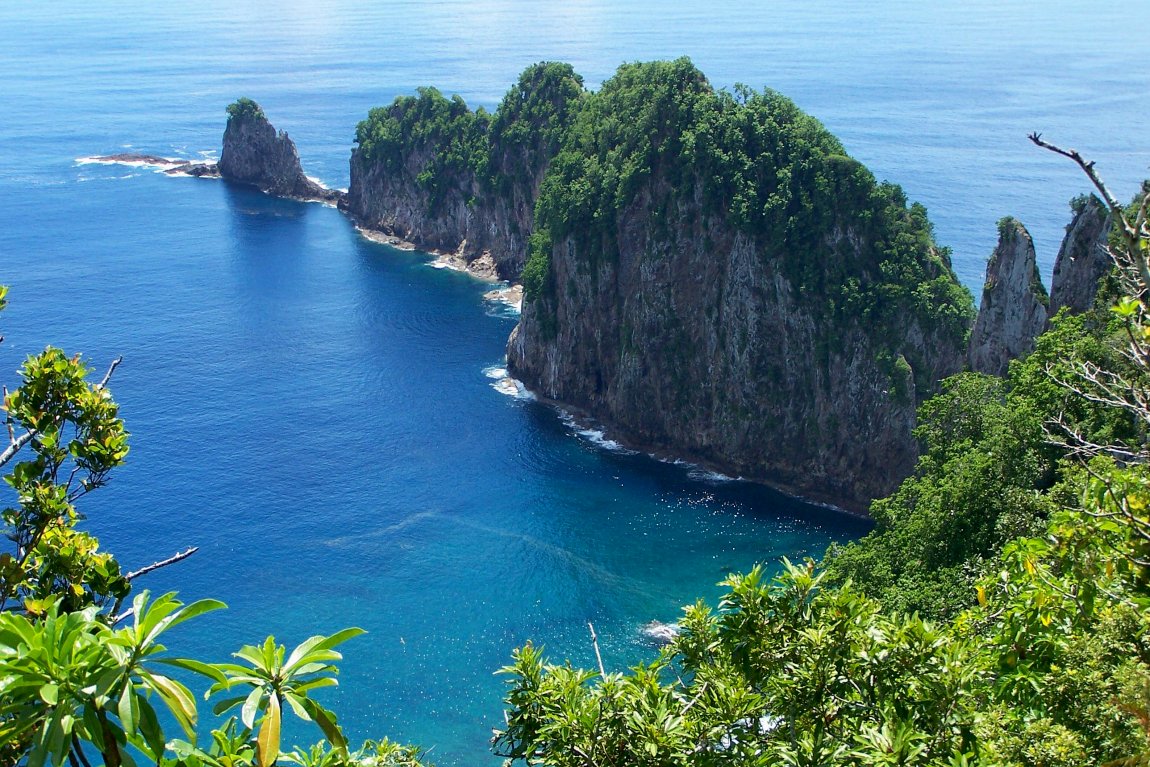 Pola Islands, Tutuila, American Samoa
Pola Islands, Tutuila, American SamoaSource: https://commons.wikimedia.org/wiki/File:Pola_Islands_Tutuila_NPS.jpg
Author: Tavita Togia, National Park Service

Places in American Samoa on this website
American Samoa is a group of islands in the South Pacific Ocean that is administered as an unincorporated territory of the United States. It is located to the west of Cook Islands, north of Tonga, and south of Tokelau.
American Samoa comprises several islands, the largest and most populous of which is Tutuila. Other islands within American Samoa include the Manu'a Islands, Rose Atoll and Swains Island. In total, the land area of American Samoa is 76.8 sq mi (199 sq km). The territory has a population of 66,500 people (2011 estimate). The capital is Pago Pago while the seat of government is at Fagatogo.
Being an unincorporated territory of the United States, American Samoa uses the US dollar as the official currency. It is eleven hours behind Coordinated Universal Time (UTC-11), making it the last place in the world to enter a new day.
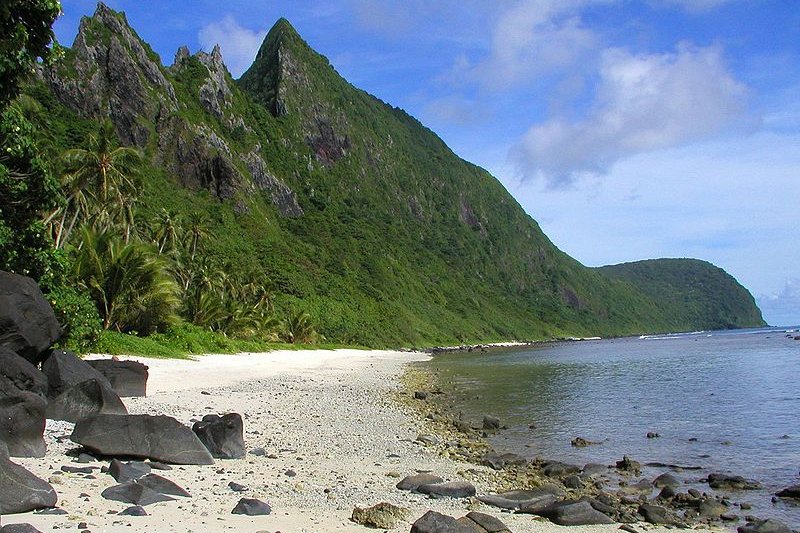 Ofu Beach
Ofu BeachSource: https://commons.wikimedia.org/wiki/File:Ofu_Beach_NPS.jpg
Author: Peter Craig, National Park Service

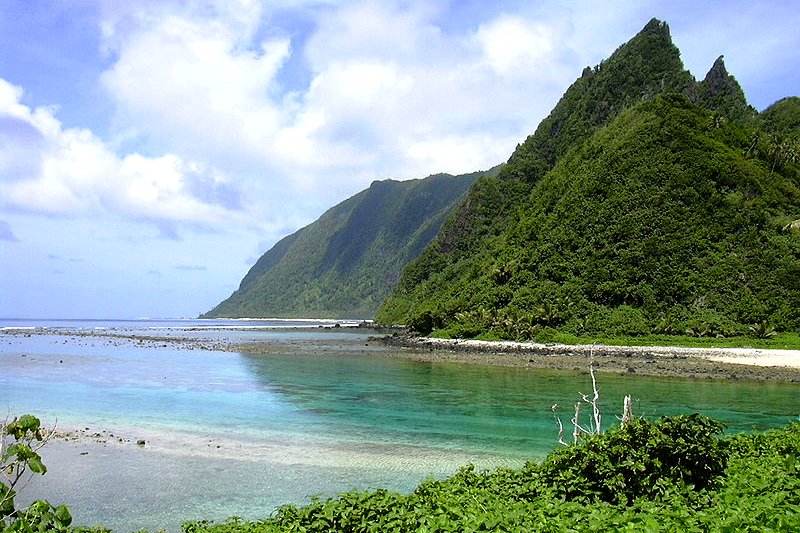 Ofu, Manu'a Islands, American Samoa
Ofu, Manu'a Islands, American SamoaSource: https://commons.wikimedia.org/wiki/File:AmSamoa_Ofu_160.JPG
Author: Marshman

The first European to sight the islands of American Samoa was Dutch explorer Jacob Roggeveen, who arrived there in 1722. Then in 1768, French explorer Louis-Antoine de Bougainville also arrived there, and named them the Navigator Islands. There is not much contact between American Samoa and the outside world until 1830, when John William from the London Missionary Society began mission work in the Samoa's.
By the late 19th century, Pago Pago Harbor has become an important refueling station for ships passing through the Pacific Ocean. Both German and American forces claimed the Samoa's. This was resolved with the 1899 Tripartite Convention giving the eastern islands to the Americans, known today as American Samoa, while the western islands are now wholly within the independent state of Samoa (although American Samoans still refer to it as Western Samoa).
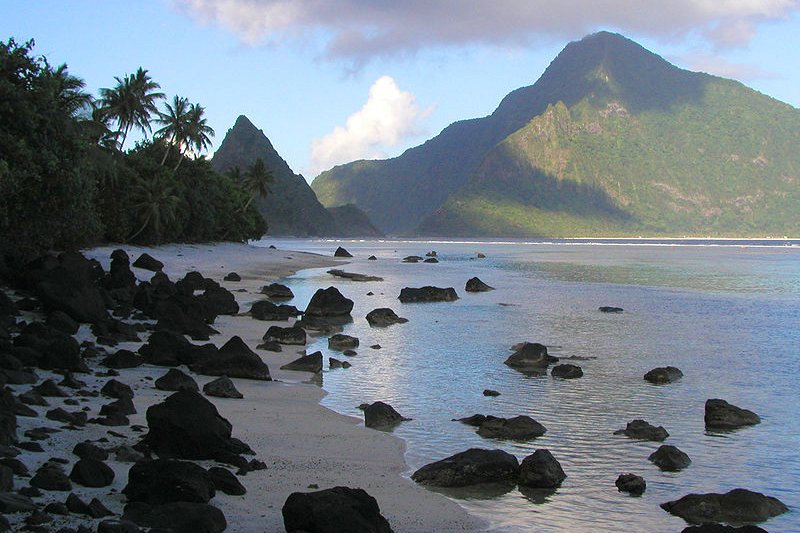 View of Olosega (right) from Ofu (left)
View of Olosega (right) from Ofu (left)Source: https://commons.wikimedia.org/wiki/File:Ofu_Olosega_NPS.jpg
Author: Peter Craig, National Park Service

Visiting American Samoa
Flights to American Samoa land at Pago Pago International Airport (PPG). Located in Tafuna, about 3 miles (5 km) to the southwest of Pago Pago, it is also called Tafuna Airport. The airport receives regular scheduled flights by Hawaiian Airlines from Honolulu, Polynesian Airlines from Maota, Samoa, and Inter Island Airways from Faleolo International Airport in Samoa.For better connection, fly to Faleolo International Airport, located 25 miles (40 km) to the west of Apia, the capital of Samoa and then connect to Pago Pago. The Faleolo Airport has flights by Inter Island Airways to Pago Pago, Ofu and Tau in the American Samoa. It also gets regular flights by Air New Zealand from Auckland, by Air Pacific from Honolulu and Nadi, Fiji, by Polynesian Airlines from Maota in Samoa, from Tongatapu in Tonga, and by Polynesian Blue from Auckland, Brisbane and Sydney.
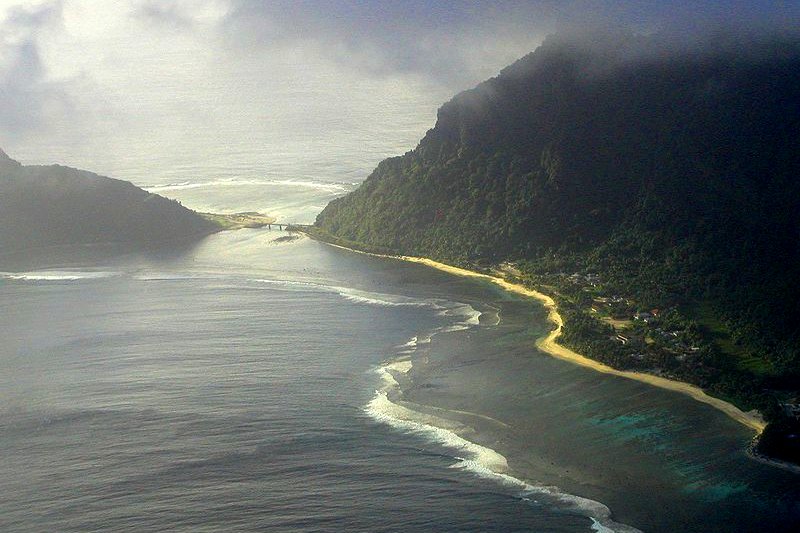 Aerial view of Olosega village
Aerial view of Olosega villageSource: https://commons.wikimedia.org/wiki/File:Olosega_Village_Aerial_NPS.jpg
Author: Peter Craig, National Park Service

 Cities in American Samoa
Cities in American Samoa
- Pago Pago (11,500)
capital
Islands of American Samoa
- Tutuila - main island
- Ofu
- Olosega
- Rose Island
- Ta'u
- Swains Island
Places of Interest in American Samoa
- Fagatele Bay National Marine Sanctuary
- Fatu ma Futi
 National Parks in American Samoa
National Parks in American Samoa
 National Monuments of American Samoa
National Monuments of American Samoa
 Latest updates on Penang Travel Tips
Latest updates on Penang Travel Tips
About this website

Dear visitor, thank you so much for reading this page. My name is Timothy Tye and my hobby is to find out about places, write about them and share the information with you on this website. I have been writing this site since 5 January 2003. Originally (from 2003 until 2009, the site was called AsiaExplorers. I changed the name to Penang Travel Tips in 2009, even though I describe more than just Penang but everywhere I go (I often need to tell people that "Penang Travel Tips" is not just information about Penang, but information written in Penang), especially places in Malaysia and Singapore, and in all the years since 2003, I have described over 20,000 places.
While I try my best to provide you information as accurate as I can get it to be, I do apologize for any errors and for outdated information which I am unaware. Nevertheless, I hope that what I have described here will be useful to you.
To get to know me better, do follow me on Facebook!
Copyright © 2003-2025 Timothy Tye. All Rights Reserved.

 Go Back
Go Back